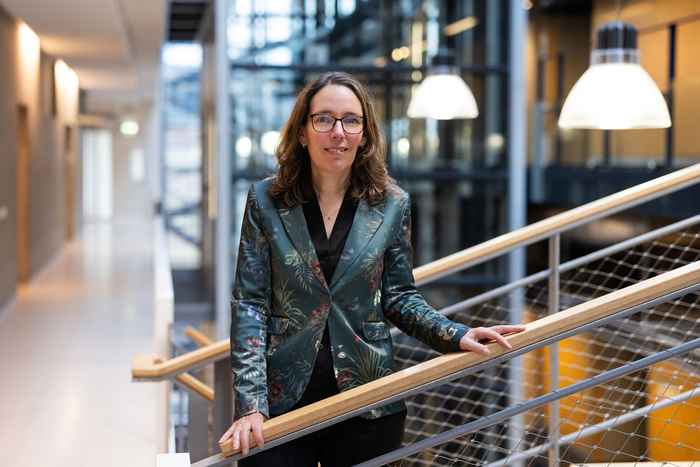Linda Verhoef appointed Professor by Special Appointment of Microbial Food Safety
29 January 2024

With her research, Verhoef aims to implement the field of epidemiology in the supervision of food chains by the NVWA. And in a creative way: by taking food (instead of people) as a starting point. To this end, modern molecular epidemiological methods that are widely used for human research are translated into food chains. This requires adjustment of existing epidemiological methods, which Verhoef will develop in collaboration with the UvA. Questions she wants to answer are: does the NVWA, as a supervisor, measure the right things? And will this still be right in 10 years? With an epidemiological approach, the continuous sample and data flow from the mandatory monitoring by NVWA, in the field of microbiological safety of both food and animal feed, can also function as a continuous baseline measurement to look back on when there are changes in food chains. For example, after the recent relaxation of the 'feed ban', or when working towards circular agriculture, from which new risks may arise.
As a professor at the UvA, Verhoef will investigate how data collected for one purpose can be used for another purpose with the responsible application of epidemiological methods. And which (stored) samples can still be used after standard analyses for newer methods such as microbiome determination. In other words: data and sampling recycling, so that the microbiological stability in food chains can be determined and predicted with increasing accuracy. SILS is leading in the field of microbiome research and within the UvA, data is made available at the genetic level and at the level of people and society in the context of the research priority ‘Personal Microbiome Health’. By linking the NVWA monitoring to this, more insight is gained into how the microbiome throughout the food chain relates to risks.
Verhoef will contribute to education by guiding students and PhD candidates, and teaching specialized courses on integrated epidemiological and microbiological analyses. Case studies are used to discuss sentinel, cohort and case-control studies, prevalence, incidence, attribution and geo-tagging.
About Verhoef
Verhoef trained as a nutritional epidemiologist at Wageningen University, after which she did her PhD research at Erasmus MC on 'Identifying international foodborne norovirus outbreak events'. Verhoef has been working at public institutions for more than 20 years and uses her scientific knowledge for public health and food safety. At the GGD and RIVM she worked on secondary prevention by detecting sources of infectious diseases, such as norovirus, Hepatitis A, Hepatitis E, and Legionella pneumonia. From these positions she was connected to national and international networks. She is inventive in the field of data analysis, combining different disciplines, and specializes in the epidemiological approach to virological data. She has mastered various analysis methods in a creative, scientifically sound manner, as evidenced by a varied list of publications. Since 2018, she has been a coordinating specialist advisor for microbiological food safety at the NVWA. In this position she initiates and coordinates scientific studies from various budgets.